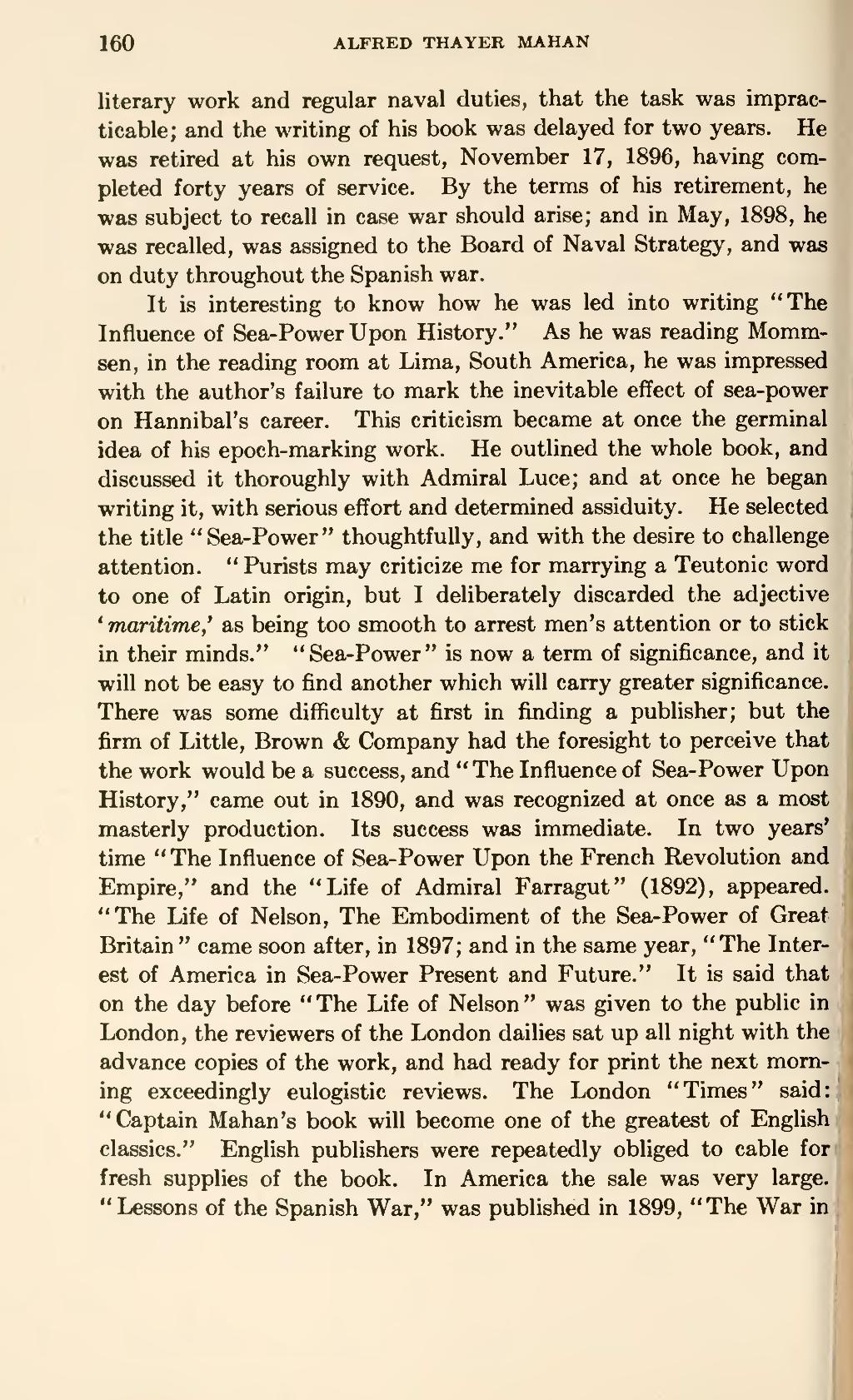literary work and regular naval duties, that the task was impracticable; and the writing of his book was delayed for two years. He was retired at his own request, November 17, 1896, having completed forty years of service. By the terms of his retirement, he was subject to recall in case war should arise; and in May, 1898, he was recalled, was assigned to the Board of Naval Strategy, and was on duty throughout the Spanish war.
It is interesting to know how he was led into writing "The Influence of Sea-Power Upon History." As he was reading Mommsen, in the reading room at Lima, South America, he was impressed with the author's failure to mark the inevitable effect of sea-power on Hannibal's career. This criticism became at once the germinal idea of his epoch-marking work. He outlined the whole book, and discussed it thoroughly with Admiral Luce; and at once he began writing it, with serious effort and determined assiduity. He selected the title "Sea-Power" thoughtfully, and with the desire to challenge attention. "Purists may criticize me for marrying a Teutonic word to one of Latin origin, but I deliberately discarded the adjective ' maritime, ’ as being too smooth to arrest men's attention or to stick in their minds." "Sea- Power" is now a term of significance, and it will not be easy to find another which will carry greater significance. There was some difficulty at first in finding a publisher; but the firm of Little, Brown & Company had the foresight to perceive that the work would be a success, and "The Influence of Sea- Power Upon History," came out in 1890, and was recognized at once as a most masterly production. Its success was immediate. In two years' time "The Influence of Sea- Power Upon the French Revolution and Empire," and the "Life of Admiral Farragut" (1892), appeared. "The Life of Nelson, The Embodiment of the Sea- Power of Great Britain" came soon after, in 1897; and in the same year, "The Interest of America in Sea- Power Present and Future." It is said that on the day before "The Life of Nelson" was given to the public in London, the reviewers of the London dailies sat up all night with the advance copies of the work, and had ready for print the next morning exceedingly eulogistic reviews. The London "Times" said: "Captain Mahan's book will become one of the greatest of English classics." English publishers were repeatedly obliged to cable for fresh supplies of the book. In America the sale was very large. "Lessons of the Spanish War," was published in 1899, "The War in
